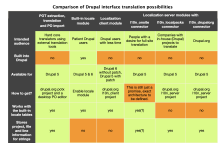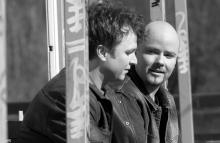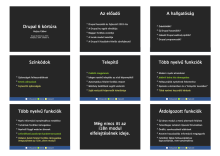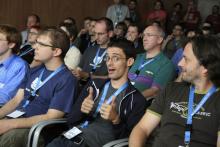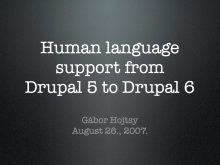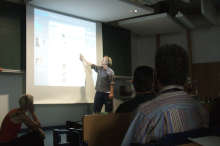With the support of the Drupal Association, I traveled to Bonn this Thursday and played the tourist around the city that day. I have been to Cologne yesterday (have seen fantastic sights in both cities), and we ended the day with a nice dinner with people here for the conference and guys from the local user group. See some of Morten's pictures which are already up.
We also ended up at our hotel for some night drinks, and I actually met with some of the nice people I know well from the PHP community (from my previous deeper involvement with the PHP project). It turned out that I switched from the Drupal guys table to the eZ Publish table (lots of people staying in the same hotel). All-in all everybody is very nice, we mixed up quite well.
The conference is also going well, although there are lots of German talks, which some of us can't understand unfortunately. But this means we are progressing with core patches in the meantime, so if you have some pet issues, be sure to continue work on them.
Again, thanks for the Drupal Association for sponsoring the event, I would not be able to make it without their support! And special thanks to Robert Douglass, who had a very good sense of flawlessly organizing the Drupal presence so far.

